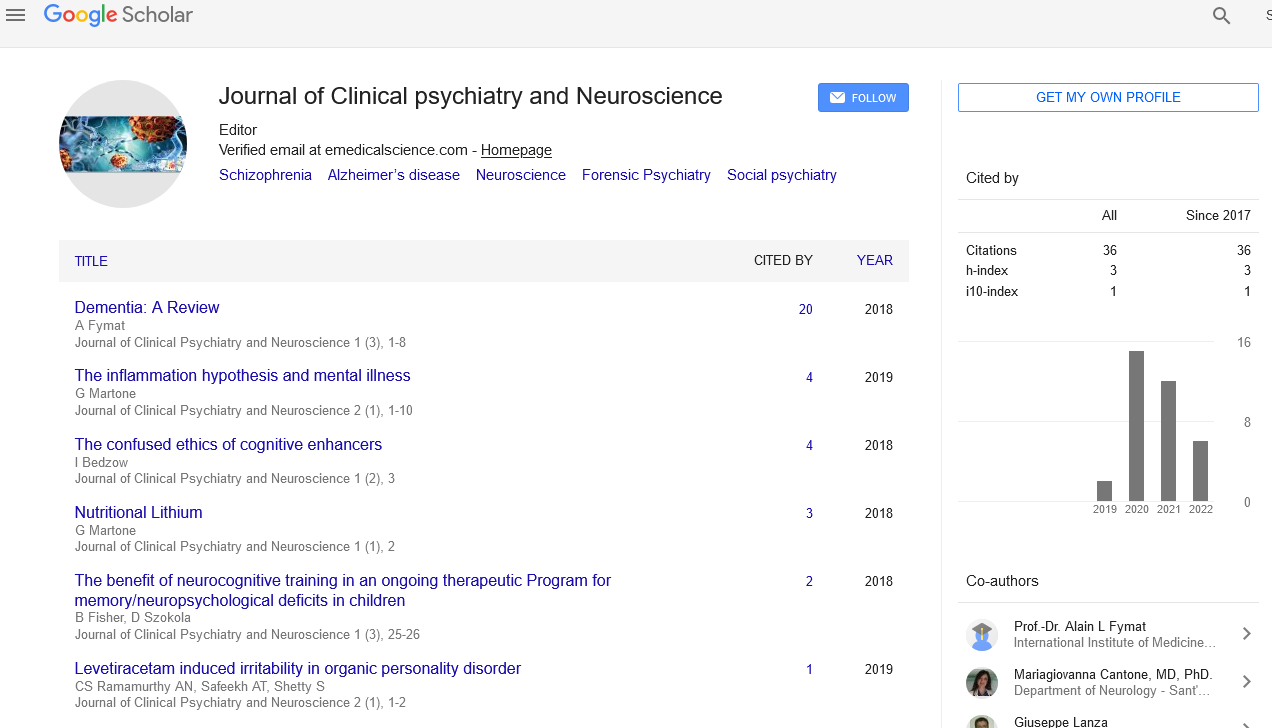
Sign up for email alert when new content gets added: Sign up
Nerve growth factor & neuroprotection: State of the art
Joint Event on 2nd World Congress on ADVANCES IN ADDICTION SCIENCE AND MEDICINE & 10th International Conference on DEMENTIA AND DEMENTIA CARE
July 24-25, 2019 | Rome, Italy
Alberto de Bellis
Maria Rosaria Maglione Foundation Onlus, Italy
Keynote: J Clin Psychiatr Neurosci
Abstract :
Nerve Growth Factor (NGF) is the founding member of the neurotrophins family of proteins, known for playing a critical protective role in the development and survival of sympathetic, sensory and basal forebrain cholinergic neurons in mammals, including humans. NGF has a neuroprotective action in Alzheimer’s and Parkinson’s disease, improves memory and reduces cognitive deficits, as showed by several studies in animal models and humans. NGF can be delivered to the Central Nervous System (CNS) via nasal route and has a neuroprotective action in case of neurodegenerative diseases and brain injury. Furthermore, recent studies have shown an active link between the nasal pathway and the spinal cord in the delivery of NGF to the CNS, thus demonstrating the neuroprotective ability of NGF to support injured neurons in a mouse model of spinal cord injury. Different ways of direct delivery of NGF to the CNS have been investigated in humans and animal models, including direct CNS infusion, gene therapy approaches, cellbased delivery using stem cells, and application of an encapsulated cell biodelivery device. All these approaches have the restriction of being invasive and invasive routes of administration are not optimal for clinical use. Intranasal delivery of NGF has so far been sufficiently investigated in animal models and only recently in humans, as demonstrated in a recent study on long-term intranasal administration of NGF in two patients affected by Frontotemporal dementia associated with corticobasal syndrome (FTD/CBS) and in another study on intranasal administration of NGF in a Brain Injury. These studies demonstrated the neuroprotective role of NGF administered nasally. Intranasal administration is the most effective and non-invasive way to deliver NGF to the CNS. These neuroprotective properties of NGF make it a strong candidate for the future treatment of neurodegenerative diseases and other pathologies of CNS (brain injury, spinal cord injury, ischemic damage) when administered via nasal route. NGF would not be able to cure the FTD/CBS but these observations support the hypothesis that NGF slows down the usual decline of the disease. However, these studies reinforce the concept that neurotrophins are able to reach and protect the CNS via nasal route and open the way for new lines of research. Hence, these findings suggest the ability of NGF to protect CNS neurons when administered via nasal spray.
Biography :
Alberto de Bellis, Neurosurgeon, is the Founder and Chairman of Maria Rosaria Maglione Foundation onlus, non-profit organization for Neuroscience based in Naples-Italy. The MRM Foundation runs in honor of the founder’s mother, Maria Rosaria Maglione, who suffers from Frontotemporal dementia. The activity of the MRM foundation is mainly aimed at research and health care for neurodegenerative diseases, brain tumors and spinal cord injury and in support of partner foundations operating in Kenya-Africa.
E-mail: albertodebellis@hotmail.com




